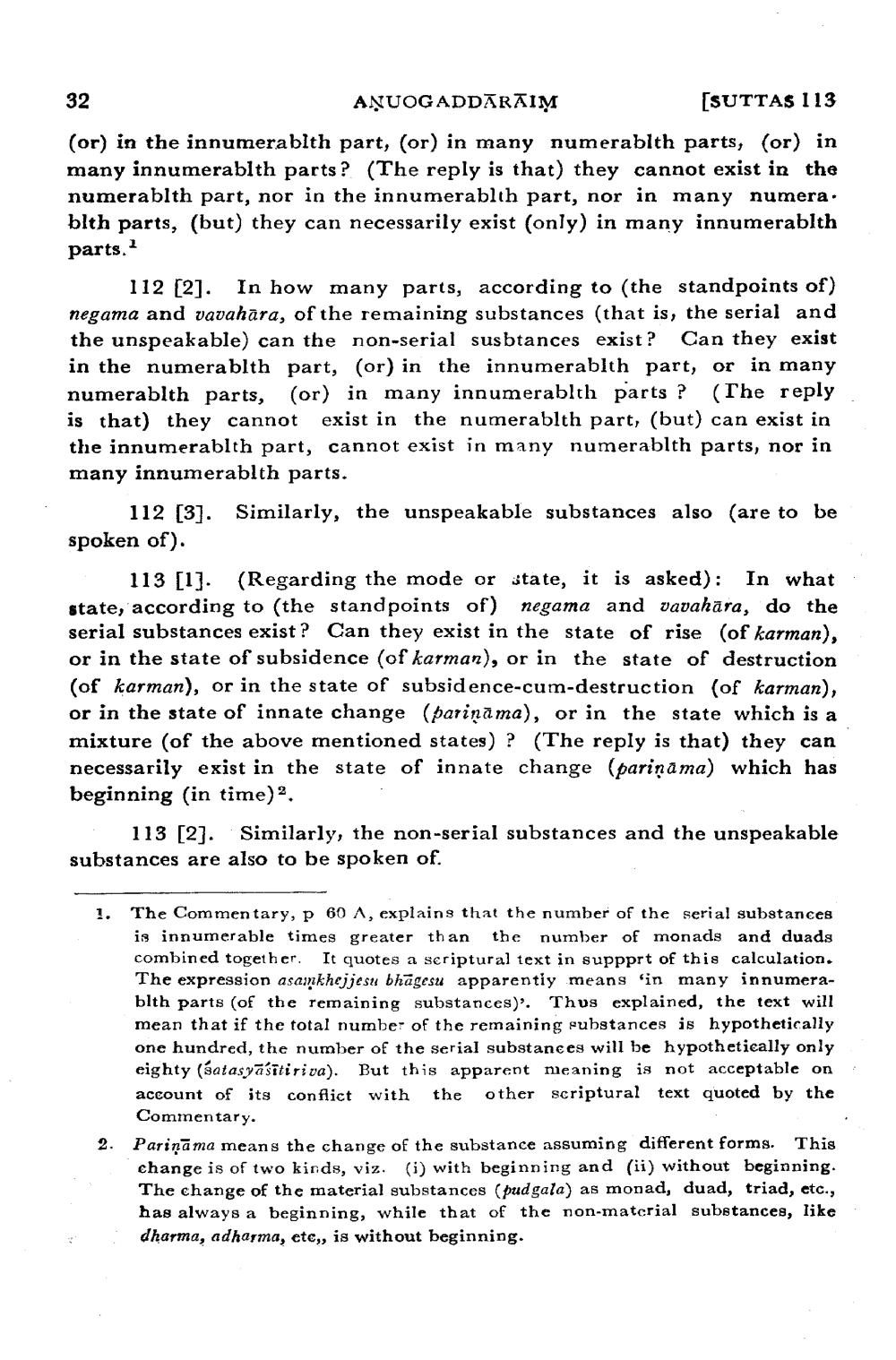________________
32
ANUOGADDĀRĀIM
[SUTTAS 113 (or) in the innumerablth part, (or) in many numerablth parts, (or) in many innumerablth parts? (The reply is that) they cannot exist in the numerablth part, nor in the innumerablth part, nor in many numera. blth parts, (but) they can necessarily exist (only) in many innumerablth parts."
112 [2]. In how many parts, according to the standpoints of) negama and vavahāra, of the remaining substances (that is, the serial and the unspeakable) can the non-serial susbtances exist? Can they exist in the numerablth part, (or) in the innumerablth part, or in many numerablth parts, (or) in many innumerablth parts ? (The reply is that they cannot exist in the numerablth part, (but) can exist in the innumerablth part, cannot exist in many numerablth parts, nor in many innumerablth parts.
112 [3]. Similarly, the unspeakable substances also (are to be spoken of).
113 [1]. (Regarding the mode or state, it is asked): In what state, according to the standpoints of) negama and vavahāra, do the serial substances exist? Can they exist in the state of rise (of karman), or in the state of subsidence (of karman), or in the state of destruction (of karman), or in the state of subsidence-cum-destruction (of karman), or in the state of innate change (pariņāma), or in the state which is a mixture (of the above mentioned states) ? (The reply is that) they can necessarily exist in the state of innate change (parina ma) which has beginning (in time).
113 [2]. Similarly, the non-serial substances and the unspeakable substances are also to be spoken of.
1. The Commentary, p 60 A, explains that the number of the serial substances
is innumerable times greater than the number of monads and duads combined together. It quotes a seriptural text in suppprt of this calculation. The expression asainkhejjesu bhāgesu apparentiy means 'in many innumerablth parts of the remaining substances). Thus explained, the text will mean that if the total number of the remaining substances is hypothetically one hundred, the number of the serial substances will be hypothetically only eighty (satasyaśītiriva). But this apparent meaning is not acceptable on account of its conflict with the other scriptural text quoted by the
Commentary. 2. Pariņāma means the change of the substance assuming different forms. This
change is of two kinds, viz. (i) with beginning and (ii) without beginning. The change of the material substances (pud gala) as monad, duad, triad, etc., has always a beginning, while that of the non-material substances, like dharma, adharma, etc,, is without beginning.




